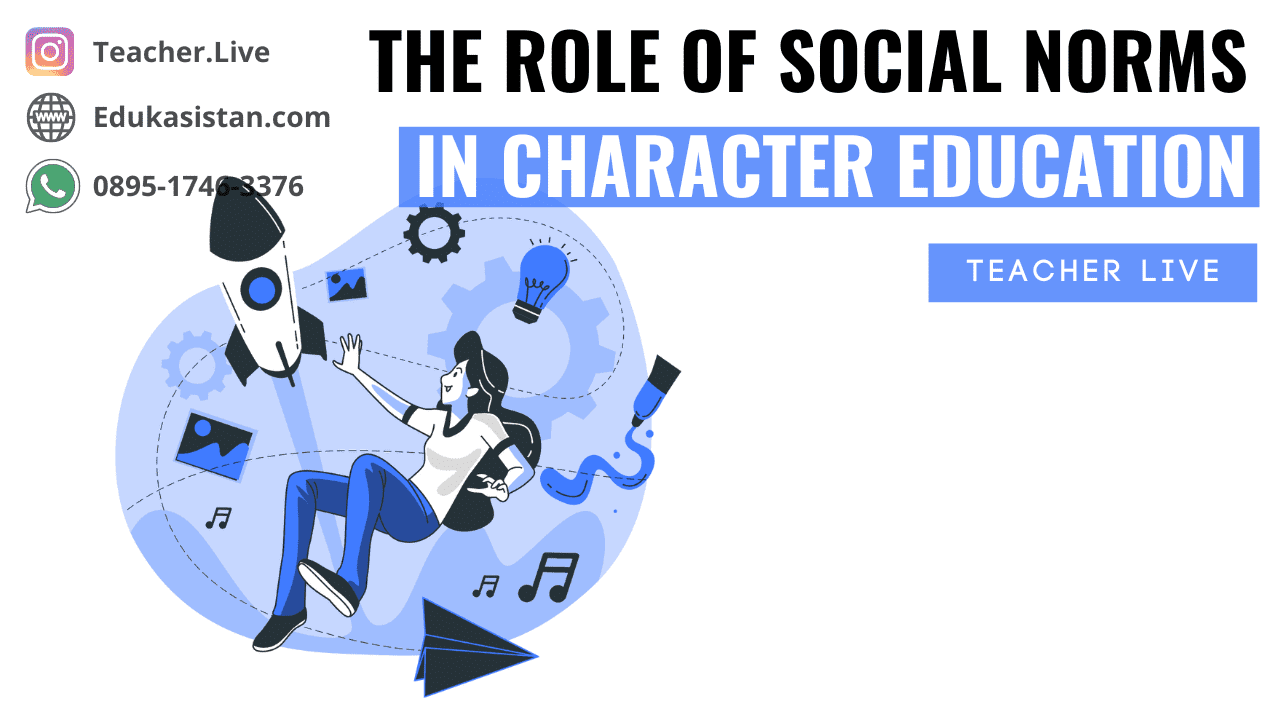The Role of Social Norms in Character Education
Edukasistan.com - Hello everyone! Character education is critical in the formation of good individuals with integrity. Through character education, individuals can learn about moral values, ethics, and good behavior daily.
However, to achieve this goal, it is necessary to understand social norms and their role in character education.
In this article, I will discuss the role of social norms in character education. Social norms are unwritten rules that govern the behavior of individuals in society.
There are several types of social norms, such as folkways, mores, and taboos. Social norms play an essential role in maintaining order and harmony in society.
- Social norms are rules of behavior that are accepted by society.
- Social norms play an essential role in character education as guidelines for behavior.
- Social norms also shape social identity and serve as a means of moral learning.
- The challenge in implementing social norms is the existence of different cultures and views.
- The application of social norms needs to be done consistently and continuously to build good character.
Definition of Social Norms
 |
| The Role of Social Norms in Character Education |
Social norms are unwritten rules that govern the behavior of individuals in society. These rules develop naturally through interactions between individuals. Social groups maintain them to maintain order and harmony in society.
There are several types of social norms that we encounter daily. The first is folkways or customary norms. Folkways are informal rules about how we should behave in certain situations, such as speaking politely or greeting others when we meet.
The second is mores or moral norms. Mores are stricter rules with more significant ethical implications, such as prohibiting stealing or lying. Third are taboos, which are strictly forbidden norms, and breaking them is considered very inappropriate.
Social norms play an essential role in society. Social norms help maintain order and harmony in society by providing guidelines on behaviors that social groups accept. With social norms, society would be more cohesive, and living together in harmony would be easier.
The Role of Social Norms in Character Education
Social norms play an essential role in character education because they can serve as behavioral guidelines for individuals. By understanding social norms, individuals can learn how to behave daily.
1. As a Behavioral Guideline
First, social norms function as behavioral guidelines for individuals. By understanding and following social norms, individuals can know the limits of behavior accepted by society to avoid damaging or unlawful actions.
2. Social Identity Formers
Second, social norms also shape a person's social identity. A person's identity is determined not only by physical or personality characteristics but also by the social norms adopted and followed. By understanding social norms. Individuals can develop a solid social identity and become part of their social groups.
3. Moral Learning Tools
Third, social norms are also a means of moral learning. By understanding social norms, individuals can learn about moral values such as honesty, cooperation, and mutual respect. These norms help shape an individual's character to become a person of goodwill and integrity.
Challenges in Implementing Social Norms
Despite the critical role of social norms in character education, their implementation has some challenges. One of the main challenges is the cultural differences between individuals or community groups.
Each culture has its own rules or norms that may differ from other cultures. This can cause conflict or misunderstanding between individuals from different cultures.
In addition, resistance to change is also a challenge in applying social norms in character education. Some people may not want to change their behavior because they are comfortable with the old way of life or feel that the new rules are irrelevant.
Conclusion
Social norms are essential in character education as they guide individuals' behavior, shape social identity, and serve as a means of moral learning.
By understanding social norms, individuals can learn about moral values and good behavior in daily life. However, there are challenges in applying social norms in character education, such as cultural differences and resistance to change.
Therefore, educators and parents must prioritize teaching and implementing social norms in character education. By doing so, we can help shape a young generation with good character and integrity for a better future.
Frequently Asked Questions (FAQs)
1. What are Social Norms?
Social norms are rules or procedures that apply in society that regulate the behavior of individuals or groups in social interactions.
2. What is the role of Social Norms in Character Education?
Social norms are essential in character education because they can shape positive behaviors and attitudes in individuals. Social norms can also help individuals to understand the values upheld in society.
3. How can social norms be integrated into character education?
Social norms can be integrated into character education by learning social values upheld in society. In addition, social norms can also be applied to social activities that involve students.
4. What is the impact of not following social norms in character education?
Following social norms in character education can positively impact individuals and society. Individuals who do not follow social norms may become undisciplined, irresponsible, and lack empathy towards others.
5. How do we teach social norms to children?
Social norms can be taught to children through learning social values in the family, school, and community. In addition, parents and teachers can provide examples of good behavior and teach children to respect differences and comply with applicable rules.

